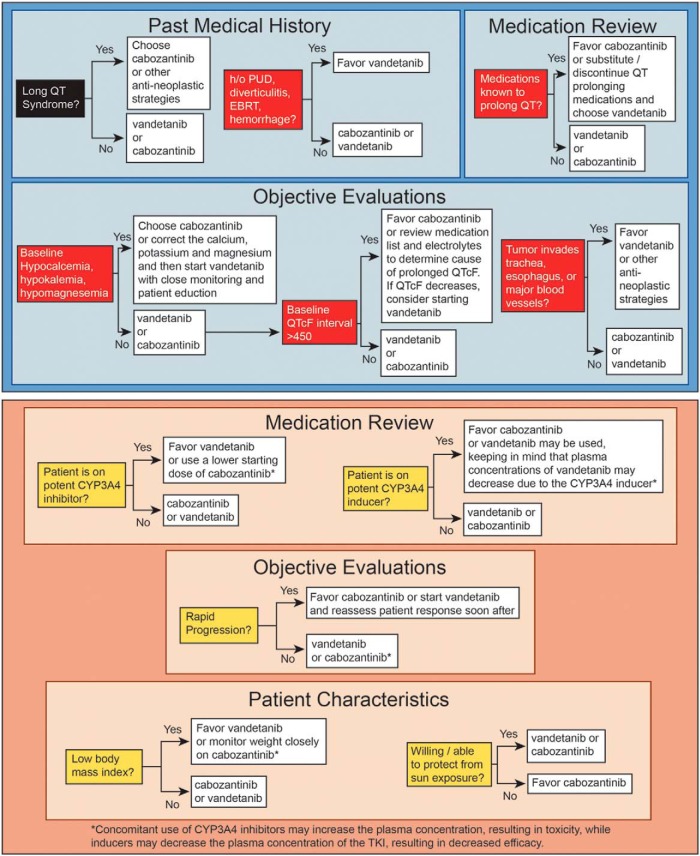Figure 1.
Top panel, Relative contraindications to consider when choosing vandetanib or cabozantinib for progressive or symptomatic MTC. A careful review of the medical history, patient medications, EKG, and tumor characteristics should be performed to determine which drug to start in patients who qualify for systemic therapy for MTC. Vandetanib should be avoided in patients who are at risk of prolonged QT interval as a result of personal cardiac history, difficulty in managing hypocalcemia, or use of certain medications that cannot be substituted. Cabozantinib should be avoided in patients with a history of peptic ulcer disease, diverticulitis, or a tumor invading the trachea, esophagus, or major vessels due to the risk of perforation or fistula. In these patients, vandetanib should be used with caution. Bottom panel, Factors that may be taken into consideration when a patient has no relative contraindications to either vandetanib or cabozantinib (see top panel). A careful review of the medication list, tumor characteristics, and patient characteristics is important when selecting which drug to initiate in patients with MTC, especially if the patient has no contraindications to either drug. Concomitant use of CYP3A4 inhibitor drugs may increase the plasma concentration of cabozantinib, whereas CYP3A4 inducers may decrease the plasma concentration of vandetanib. A list of CYP3A4 inhibitors and inducers can be found at www.medicine.iupui.edu/clinpharm/ddis/. Cabozantinib is the only drug proven to be effective in patients with progressive MTC; therefore, the rate of progression may be important when selecting which drug to initiate. Low body mass index and a patient's willingness to protect him- or herself from sun exposure are additional factors to be considered. Cabozantinib causes weight loss, whereas vandetanib may cause weight gain. Photosensitivity is an adverse effect of vandetanib. h/o, history of; PUD, peptic ulcer disease; QTcF, rate-corrected QT interval using the Fridericia formula; EBRT, external beam radiation therapy.

